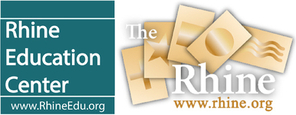Syllabus: Theories of Psi - An Introduction
Course Description
This eight week academic course introduces students to the theories of psi.
Many people claim that there is no theoretical foundation for psi phenomena, but over a century of research has involved many theories of psi activity and the best way to demonstrate psi phenomena. From theories of animal magnetism to quantum physics to astrology, researchers have been testing the validity of theories that may contribute to the events that so many people experience in their lives.
This course is an introduction to the theories that guide psi researchers in their quest to better understand how psi works. It includes practical theories like the experimenter effect and the decline effect, psychological theories like the sheep-goat effect, and more recent theories like Decision Augmentation Theory, First Sight Theory, and even an exploration of similarities between psi phenomena and quantum physics.
Students should have a foundation in parapsychology with a focus on reviewing research articles. It is an introduction to the theories of psi, but does not include an introduction to parapsychology.
Recommended prerequisites: Introduction to Parapsychology or experience or courses that include reading and evaluating scientific parapsychology articles from peer reviewed journals.
Course Outline
-
Theories of ESP
-
GESP & Decision Augmentation Theory
- What is ESP
- Testing Telepathy, Clairvoyance, Precognition
- GESP
- Decision Augmentation Theory
- Can we ever know?
-
Signal to Noise; Target Types
- ESP Cards
- Remote Viewing & Ganzfeld
- Factors that influence performance (mental discipline; belief; previous experience)
- Creativity, dissociation, & belief
- Sensory deprivation
- Targets & judging
-
Psi Missing, Decline Effect, Experimenter Effect
- Psi Missing is psi
- Decline Effect in ESP and other sciences
- Local Sidereal Time
- Experimenter Effect in ESP & other sciences
-
PMIR & First Sight Theory
- Conscious vs unconscious cognition
- What is PMIR?
- What is First Sight Theory of Psi?
-
-
Theories of Time and Energy
-
Precognition, Synchronicities, & Creating the Future
- Is time real?
- Synchronicities or psi?
- Precognitive dreams
- Presentiment
- Do we see the future or create the future?
-
Energies: Field, Waves, Particles - Healing Mechanisms
- Phenomena: ESP, PK, & Healing
- Distance & barriers
- Particles, Waves, & Fields
- Healing Measurements
- Magnetic effects, local & global
- GCP & group effects
- Healing energies vs facilitating vs creating the future
-
-
Theories of Survival and Science
-
Survival vs Super Psi
- What is super psi?
- Mediumship
- Out of Body Experiences
- Near-Death Experiences
- Cases of the Reincarnation Type
- Apparitions & Hauntings
-
Quantum Theories & Psi
- Observer Effect
- Entanglement
- Uncertainty Theory
-
Course Materials
Suggested Readings:
Real Magic by Dean Radin (Accessible and easy to read, but very well researched)
First Sight Theory of Psi by Jim Carpenter (academic and complex, but well structured)
Various articles and other media provided by the instructor through the courseroom.
Course Activities
- Students will be expected to view the class broadcasts or the recordings of the classes each week.
- Students will be expected to participate in weekly discussion forums and activities. Each student will be expected to provide an original posting each week and to respond to at least one other student in the discussion forums. Greater participation in this area will be considered during class evaluations.
- One multiple choice or short answer evaluations will be assigned after the 4th or 5th week of class.
- Students will evaluate a phenomenon explored by parapsychologists and discuss it from a theoretical perspective. This will be a 3 – 7 page paper due at the end of the course.
Evaluations and Grading
Students who are taking the course for a grade will be assessed using a letter grade based on the standard letter grade format.
A – 90 - 100
B – 80 – 89
C – 70 – 79
D – 60 – 69
F – Below 60
Participation in the forums is a large component of the grading, and substantive postings are necessary to get full credit for each discussion topic.
The following activities will be considered to contribute to the courses as follows:
Discussions (Total 40%): 5 points for each of the 8 weeks including responses to other people's posts
Assessment #1 (30%)
Research Summary (30%)

